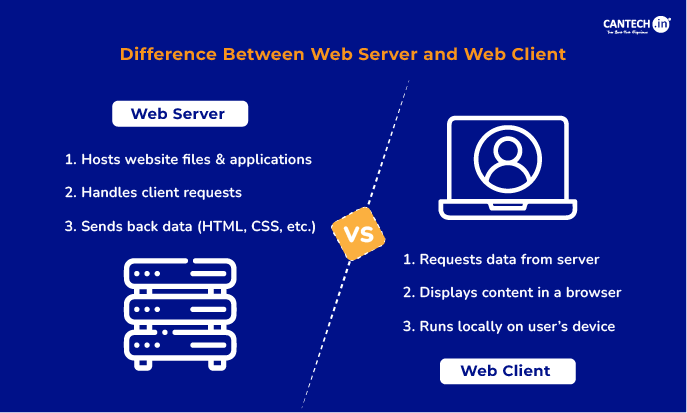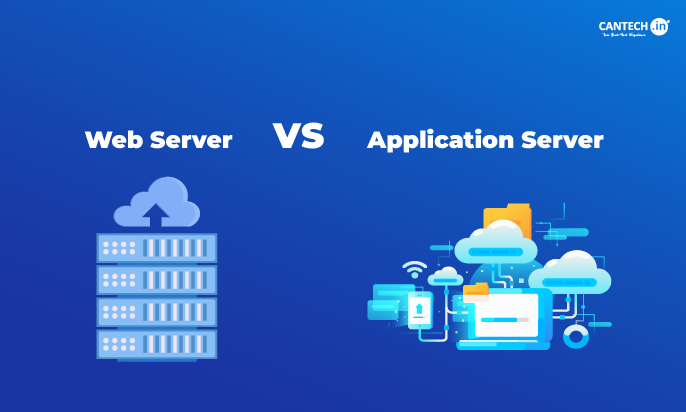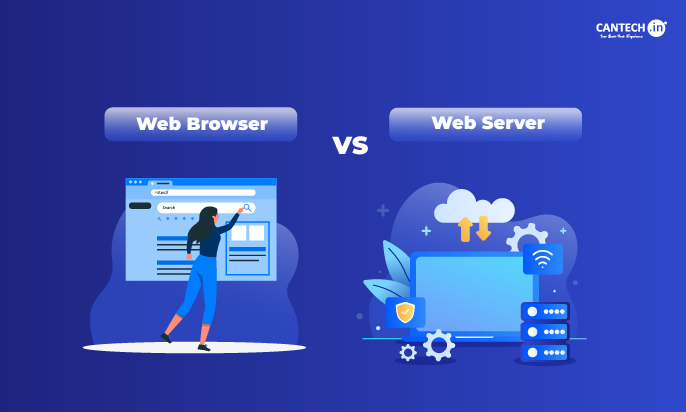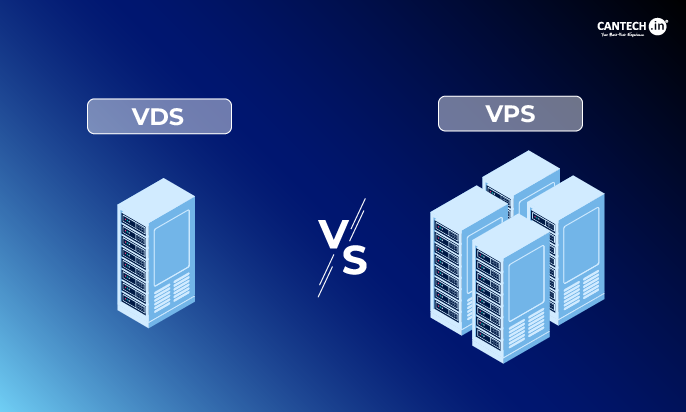Choosing a web server is also important in the matter of getting a site on the net running, as well as what it keeps on dealing with web traffic. There are two most popular web servers in the industry, Apache HTTP Server (commonly known as Apache) and Nginx. All of them have played highly relevant roles in defining the internet’s infrastructure with their own strengths and use cases. So, if you’re interested in understanding the difference between Apache and Nginx, or perhaps learn which is more suitable for your dedicated server, then this blog will help you out with the details.
In this post we will be comparing what Apache and Nginx are, how they work, what they offer, and where do they excel at. Getting to know about these web servers will guide you whether you’re running a personal blog, e-commerce store or a large enterprise application. Let’s dive in!
Apache and Nginx are both extremely good, but their design philosophies are radically different. Apache is flexible and compatible, which has made it a favorite among developers who like to customize greatly. While Nginx’s architecture has been designed for speed and concurrency, it is the ideal solution for modern, high traffic websites. It comes down also to understanding what your project requires in terms of traffic, scalability and content type.
What Is Apache?
Apache as seen above is an open source web server that has been around since 1995 and widely distributes their source code and allows anyone to create modifications for refereeing purposes. It is an old and trusted web server that is developed by Apache Software Foundation. The reason Apache is so widely used is its robust architecture, and versatility.
The reason why Apache is popular is because it is able to easily handle dynamic content. The architecture of the server is flexible and of a modular type that allows its functionality to be tailored to meet the need. Apache is available to beginners and experienced developers alike and, with a highly documented, largely user friendly configuration system, is easy to learn, easy to use and has the feel of a reliable platform.
Its cross platform compatibility means it works flawlessly on Linux, Windows, and macOS operating systems. The fact Apache also supports scripting languages such as Python, Perl as well as PHP only adds to the developers’ friendliness of Apache.
In addition to Apache’s flexibility and versatility, you likely know why it is such a popular choice: its active community and relatively consistent releases ensures that it is a safe and secure option for projects of all kinds. Apache remains a solid web server solution, regardless if it is a simple personal web site or a complex enterprise system.
Apache Features
1. Module-Based Architecture
One of the most amazing things about Apache is its modularity. Through this architecture, users are able to add and remove functionality as per their own requirements. And mod_rewrite makes it possible to rewrite URL and mod_ssl ensures secured connections through using SSL/TLS encryption. So, Apache is highly customizable, since developers can customize their web server setup without touching the core code.
In addition to flexibility this modular system promotes stability. Modules can be used by users, it allows us to load only the necessary modules for our application which consequently improves memory and conflict usage. It also provides a very active community that constantly updates and maintains a wide variety of modules that work well with the latest and newest technologies.
2. Cross-Platform Support
Apache supports both Linux, Windows, macOS and more. Due to this cross platform support, developers and system administrators can access it. Whether it be on a Linux, Ansible or OS X backend, Apache just works and works well, with no hiccups when hosting websites or applications.
By clubbing together Apache and the platform, not only can an organization function on multiple platforms, but it is able to integrate Apache with an existing environment with minimal structural modifications. For Linux users, it also has compatibility with most popular distributions like Ubuntu, CentOS and Red Hat. Besides, appropriate documentation and community support facilitate use of the platform to solve platform specific issues.
3. User-Friendly Configuration
The very utility of Apache’s configuration system is both powerful and intuitive. There are files like .htaccess you can use to implement your changes at a directory level, which lets you change them without the need to change access rights to your root directory. This feature is particularly useful in shared hosting environments where each individual user has themself granular control of their configurations.
With almost infinite customizations, the .htaccess file can be used to redirect, authenticate, and control access. Because Apache makes it so easy to configure, webmasters who need flexibility without sacrifice of security or performance always keep it as a favorite web server.
4. Wide Compatibility
Apache supports a couple of languages based on PHP, Python, Perl, and Ruby. This compatibility spans over so much that it allows developers to run different applications without extra configuration. And this integration is seamless, so that scripts and dynamic content can be executed smoothly.
Apache is an excellent choice for running Content Management Systems (CMS) such as WordPress, Joomla and Drupal because this feature makes them easy to install. Additional firming its place as a versatile web server solution is the fact that it can support multiple frameworks and tools.
5. Dynamic Content Handling
Server side scripting is well handled by Apache when dynamic content is required. It is good because it can handle requests with databases, user inputs, inputs such as interactive elements and so on therefore it is perfect for websites that depend on real-time data updates. Built with features such as CGI (Common Gateway interface) and the integration with backend technologies, you can manage complex job tasks easily.
Such capability is of significant importance to e-commerce platforms, online forums or interactive websites. Apache’s superior capacity to serve dynamic content with very low traffic loads also ensures a smooth end user experience.
Apache Uses
Apache is an excellent choice for shared hosting environments and applications requiring dynamic content handling. It’s particularly suited for:
- Hosting small to medium-sized websites.
- Running Content Management Systems (CMS) like WordPress, Joomla, and Drupal.
- Applications requiring extensive customization.
- Serving websites with complex URL rewriting needs.
Apache Speed
Apache is flexible and offers quite a lot of features, but it may often be slow in comparison to raw speed – especially in terms of dealing with high amounts of concurrent traffic. It may be performed however with help from optimizations, such as caching, connection pooling, and load balancing, the performance may be greatly enhanced. Apache also supports modern web standards such as HTTP/2, and much more.
What Is Nginx?
Originally created in 2004, Nginx (pronounced as “Engine-X”) was created by Igor Sysoev. Nginx has been designed to rectify performance bottlenecks facing web servers quickly making it synonymous with speed and scalability. Nginx uses an Event driven architecture, and unlike Apache, which runs on process driven, Nginx.
Nginx is ideal for a website with high concurrent traffic as its another feature of Nginx is that it is particularly good at handling that, so it is good in this aspect. As web servers go, it is non-blocking and asynchronous so it can get away with much less resources to serve more requests than most traditional web servers.
The main difference between Nginx and Apache is that Nginx can be used as a reverse proxy and the web server too. This double functionality offers added flexibility, as it not only spots the traffic, either distributing it, loading times, it can also push the back to the applications. Nginx’s unique architecture and newer features make it the choice for hosting and delivering wets.
Also, Nginx supports the most up to date web protocols such as HTTP/2 and WebSockets, assuring better compatibility at the web standards level. The forward thinking design means it also acts as a future proof solution for businesses who want to remain at the forefront of a contestant digital environment.
Nginx Features
1. Event-Driven Architecture
Both one of Nginx’s standout features and a surprising one, Nginx’s event driven architecture. In comparison to standard process driven models, Nginx relies on asynchronous I/O operations to multiple connections at once. Compared with a conventional batch processing design, this design conserves resources, and is highly efficient and capable of supporting thousands of concurrent users.
In particular, this architecture offers tremendous advantages for websites and APIs that are popular and have high traffic. What makes Nginx different from other server software is the way it allocates resources so they consume less and can serve more, even under heavy loads.
2. Reverse Proxy / Load Balancing
As a reverse proxy server, Nginx is great at forwarding client requests to back end servers. In addition to that it also distributes incoming traffic to multiple servers, and prevents server overload to maintain balanced workloads. Nginx provides these features making it an essential part of many modern web architectures.
These include algorithms such as round robin, IP hash, to least connections. The advantages of these options are that they give us the opportunity to do traffic distributional management which promotes reliability and performance for applications.
3. Static Content Delivery.
Nginx is designed to serve static content (HTML, css, javascript, images and videos). This makes its files fast to respond to when they are present in memory or disk.
This is especially useful for sites that are mostly about things (like blogs, news platforms, multimedia services). Not only does this allow organizations to save backend resources for processing of dynamic content, but it also offloads static file delivery to Nginx.
4. HTTP/2 and Modern Protocols
This means that Nginx will support modern web protocols like HTTP/2, WebSocket and gRPC to be compatible with the coming times. In particular HTTP/2 reduces latency by enabling multiplexing, header compression, and server push.
The delivery of fast and secure web experiences requires these advanced protocols. Becoming an industry standard and thus future proof, Nginx is chosen by developers and administrators.
Differences Between Apache and Nginx
1. Architecture and Design
Apache is a process-based architecture, each client request will be done by client thread or process separately. Although this is very flexible and scalable, it will run out of resources under heavy load because a bunch of thread overhead goes to creating and maintaining thread. So, Apache is more fit for small to medium workloads.
Then Nginx comes with a different architecture, event-driven and asynchronous. This design allows for it to efficiently serve thousands of concurrent connections using very few resources. It is exactly this reason why Nginx is king in high-concurrency, and why you should go with Nginx for websites and applications which are under high-traffic.
2. Static v/s Dynamic Content
When used with mod_php or other modules Apache does gutsily trounce in performance serving dynamic content (e.g. PHP). It can be used to handle dynamic requests directly without the will of an external backend, which removes a level of complexity in server setups for applications highly dependent on dynamic processing.
Nginx is known to be very fast at serving static files like images, CSS, html and so on. It is intended to serve static assets significantly faster than Apache. But for dynamic content, Nginx will use a separate processor (FastCGI / PHP-FPM). The right choice to serve static sites (e.g. popular microservices stack based website setup.
3. Configuration and Flexibility
You can configure Apache via .htaccess files which mean the same developers who make under-the-hood changes do not need any server-wide permission changes. The feature allows Apache to be very flexible, especially in shared hosting environments with each user having a directory they can control.
Nginx does not support .htaccess files and must be centralized configuration. This may look a bit restrictive but it also enables better performance and security, because checking the file does not get invoked before every request. This is well suited to organizations that want an easy answer but control over that answer.
4. Performance and Resource Usage
The process-based architecture that Apache uses tends to break in high traffic as performance degrades because of the load. In each new request, a new process or thread is spawned which will inevitably eat away memory leading to bottlenecks especially under high load.
Nginx performs better and uses less resources thanks to the event-driven model. It can support hundreds or thousands of concurrent connections without a material increase in memory usage. This makes it ideal for high performance applications or real-time systems that need very low latency.
5. Support and Ecosystem
Apache has been around for decades and boasts a mature ecosystem with extensive documentation, community support, and compatibility with numerous modules. This makes it a go-to choice for developers who prioritize a well-established and supported web server.
Nginx, although relatively newer, has rapidly gained popularity due to its performance benefits. It has a growing community and an extensive suite of features. Additionally, Nginx Plus, its commercial offering, provides enterprise-level support and advanced functionalities like load balancing and caching.
Advantages of Apache

1. Flexibility and Customization
Apache has a very flexible design based on the module system that permits users to integrate tools like URL rewriting, authentication and caching. Shared Hosting: easiness of changes Developer Possibilities Shared hosting environments enable developers to tweak directory level configs without having administrative access to the entire server due to .htaccess support of its support, hits the nose.
Apache lends itself well to dynamic websites that require site-specific configuration in certain directories because flexibility is built into everything from the ground up. It also can be used with many programming languages/Frameworks (PHP, Python, Perl etc. ) Such a wide host of posses makes it suitable to run big variety applications on bags.
2. Wide Compatibility and Ecosystem
Apache has been in use since 1995-and has become the most widespread web server on many levels worldwide. Having a long and established history, the ecosystem is complete and documentation was solidified since a large community was there to contribute. Apache also has a number of third-party modules and add-ons which can extend its purpose for a more specific application.
This is a must for developers and businesses that rely on their server to support lots of applications. The fact that Apache has been compatible with many different operating systems and software is one of many reasons why it is a popular choice for many organizations — especially those stuck in legacy systems.
3. Robust .htaccess Support
Supporting .htaccess files is a strong advantage for Apache. These files allow a more fine‐grained set of configuration rules to be set for access permissions, security controls and URL rewriting. It allows great flexibility for areas where individual users or sites need to have some specific configuration done, without changing the settings on the server as a whole.
Allowing control of server’s configurations without root access makes it possible to share an Apache server for hosting, with every user being able to have his/her own settings. Developers who require configuration of a specific website, or a folder in greater precision will find this possibility useful.
4. Dynamic Content Handling
Apache is also good when it comes to using dynamic content. This is especially the case when the content should be generated on an as‐needed basis. Some modules such as mod_php allows Apache to serve requests for pages with dynamic content written in PHP, Python, Perl languages among others. Because the server and scripting languages work closely together, it is easier to set up many types of web applications.
For sites or applications such as Blogs, CMS, e-commerce that need to generate content in real-time, the fact that pages with dynamic contents can be served by the processor without the need of using any other processor is of great importance.
Advantages of Nginx

1. Strong Performance and High Availability
Nginx is well engineered for performance in that it can work efficiently with a substantial amount of load having many concurrent connections, with the minimal hardware resources being used. The event-driven model allows the applications to be more responsive because absorption of heavy workloads is carried out by the concurrent processing of multiple requests. This is one of the reasons Nginx is effective in cloud environments, as scaling is relatively seamless.
When a website has to deal with high traffic spikes, or very low latency is critical, Nginx is the most suitable choice. High availability publications prove that the system can maintain its working parameters at the decent level regardless of the increased target load, therefore such solutions are optimal for situations when performance is needed regardless of the situation.
2. Reduced Hardware Resource Requirements
It is needless to say that Nginx, with so many concurrent connections and heavy loads on the memory and CPU, is amongst the most effective load balancers. Nginx can maintain so many concurrent capacities thanks to a non blocking and event driven architecture, as opposed to Apache which utilizes so many processes that compete for resources to manage loads greater than it was designed for.
The low resource requirement will make Nginx a great load balancer with limited environments such as VPS or cloud hosting. It allows organizations to maintain high performance without the need for excessive hardware, which can result in cost savings for hosting providers and businesses.
3. Reverse Proxy and Load Balancing
Nginx has the capability to serve as a reverse proxy server and also run in load balancing mode that helps to direct the traffic over multiple backend servers. This feature enhances the dependability of web applications and availability of services since no single server is burdened with excess users traffic. Additionally, Nginx has custom analytically advanced traffic load balancing mechanisms (algorithms) such as, round robin and IP Hash.
According to Nginx’s representative, reverse proxy and load balancer are crucial for companies that cater large-scale and high availability applications. With these features the application will not hang even during a surge in users which improves customer interaction with the application as well as the reliability of the entire system.
4. Ease of Configuration and Management
An easy load balancer to manage in terms of configuration is Nginx because it has a simple configuration language compared to Apache. It integrates most settings within a single Nginx configuration file which makes server management easier. Logs generated by Nginx are also of great quality, which makes troubleshooting network and traffic handling issues quite easy.
Since the configuration files that Nginx uses are straightforward, users find it easy to accomplish WordPress installation especially in sites that need multiple server components. Its ease of use makes it a popular choice for organizations seeking to optimize server performance without dealing with complex configurations.
Wrapping it Up
To sum up, both Apache and Nginx have their notable advantages, which make them appropriate for different types of web hosting needs. Nginx on the other hand is known for its superior performance and scalability which makes it the preferred choice for websites and applications that have high traffic. For Nginx, its modular architecture is particularly beneficial for handling a high volume of concurrent connections and low resource usage, ensuring good performance even when loads are heavy. For working websites Nginx is ideal because of its reverse proxy and load balancing features, as many companies require their online applications to be reliable and available.
However, Apache is simply more versatile and is compatible with many things. Moreover, Apache allows a lot of room for customization and the ability to accommodate a large amount of dynamic content. As such, it is able to support very complex configurations, including configurations using .htaccess files which makes it optimal for shared hosting and sites that must deal with real time content changes. Because of the many features that Apache supports, many developers as well as companies continue to make use of this service long past its initial release.
Ultimately, the choice between Apache and Nginx comes down to the specific requirements of your project. If you need flexibility, ease of use, and dynamic content handling, Apache is a reliable option. However, if performance, scalability, and handling high concurrency are your priorities, Nginx is the ideal solution. By understanding the advantages of each, you can make an informed decision that best suits the demands of your web hosting environment.
FAQs
What is the primary difference between Apache and Nginx?
The first difference between Apache and Nginx comes from the architecture. Apache follows a process-driven model. It takes care of a new process or thread to handle every client request. This consumes more memory during heavy traffic, but in an event-driven, asynchronous model, it can manage thousands of concurrent connections with very less resource usage as in the case of Nginx. This makes Nginx more efficient for high-traffic websites, while Apache is better suited for dynamic content handling and more flexible configurations through .htaccess files.
Which server is better for static content?
Nginx is commonly thought to be much better at serving static content. It is because of the fact that Nginx, due to its architecture as event-driven, processes several requests for static files such as images, CSS, and JavaScript much more efficiently than Apache. Moreover, it can serve static files directly with minimal resources utilized, making it highly effective on sites that have a lot of static assets. Apache too serves static content but only consumes more resources and more time since it is in the process-based handling process.
Can Apache and Nginx be used together?
Yes, they can be used together on a web server setup. A very common configuration uses Nginx as a reverse proxy server in front of Apache. Nginx will take the incoming traffic and serve static content quickly, while Apache handles the dynamic requests such as PHP or database queries. It would make the most out of the strengths of both the servers and hence can achieve high performance and scalability with web applications containing static as well as dynamic content.
Which server is easier to configure?
In terms of ease of configuration, Apache is generally more-friendly to beginners because it provides extensive documentation and the ability to use .htaccess files for localized configuration. It makes it easy for developers to adjust settings at the directory level without affecting the entire server. Nginx is also simple but requires centralized configuration. Its syntax is different from Apache, so it requires a learning curve for those just getting to know the server. However, once learned, Nginx is simple and efficient for optimizing performance.







